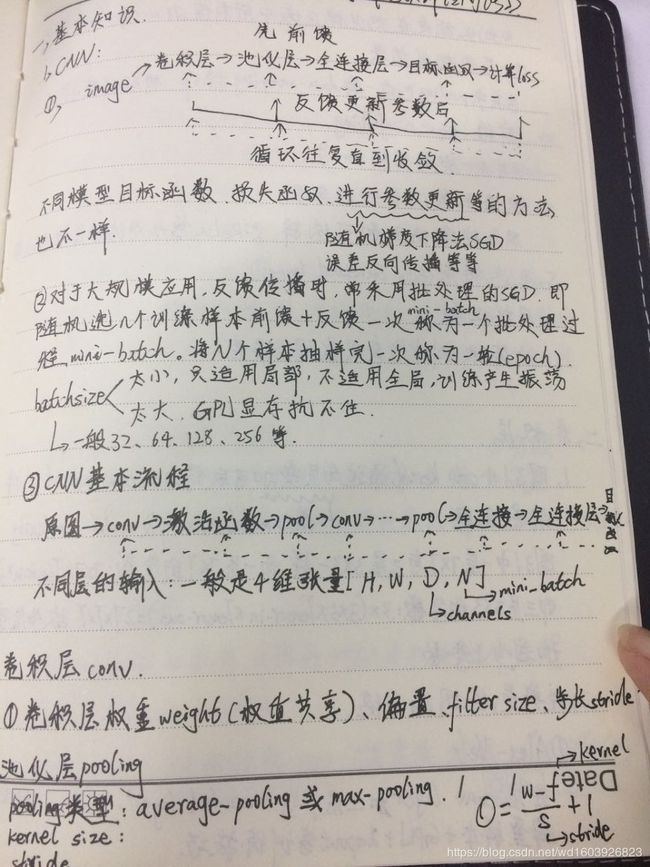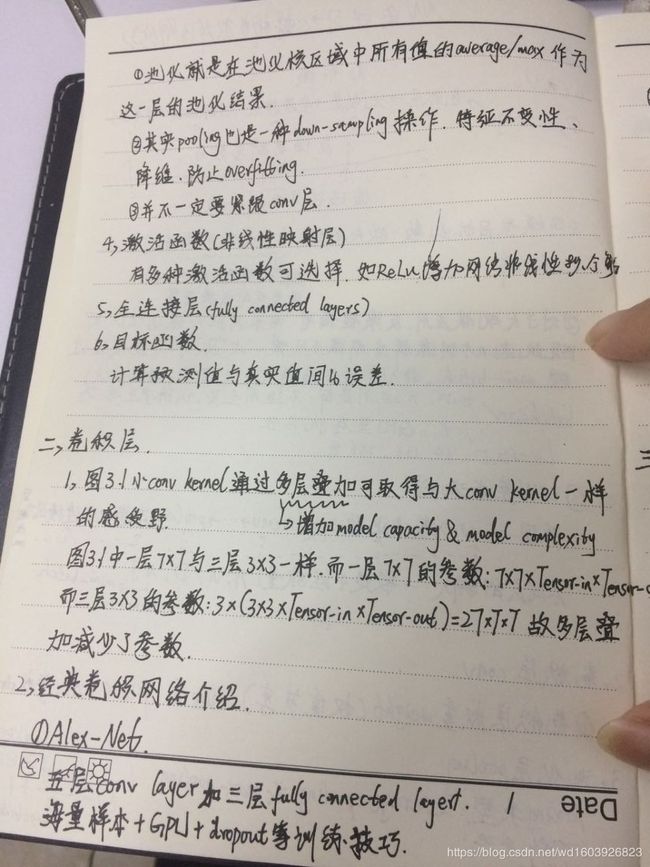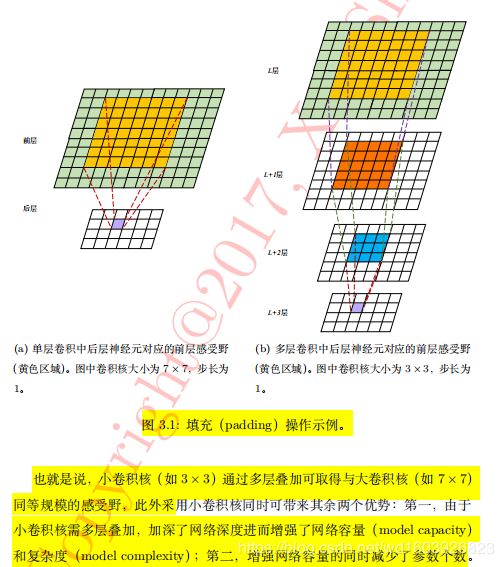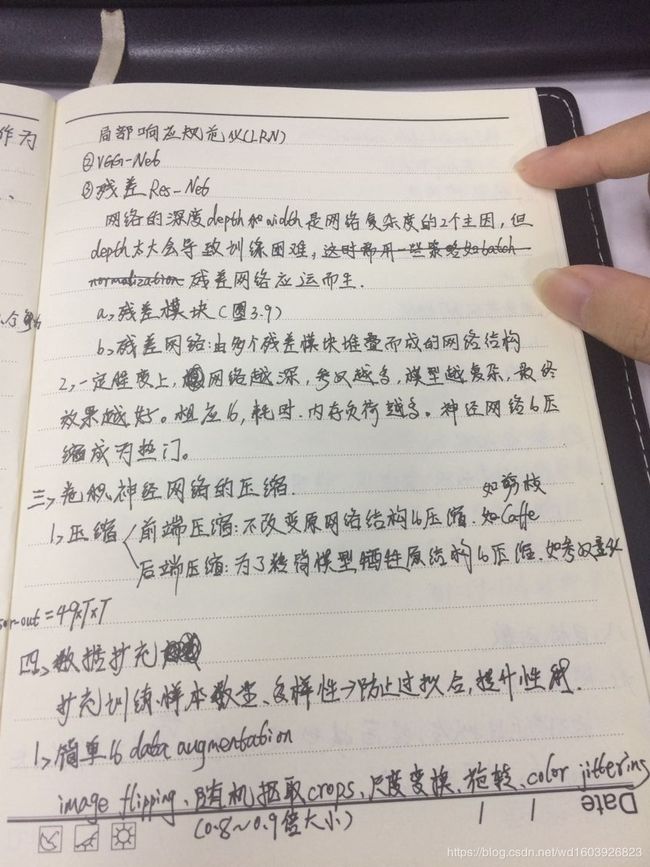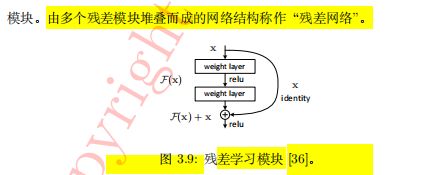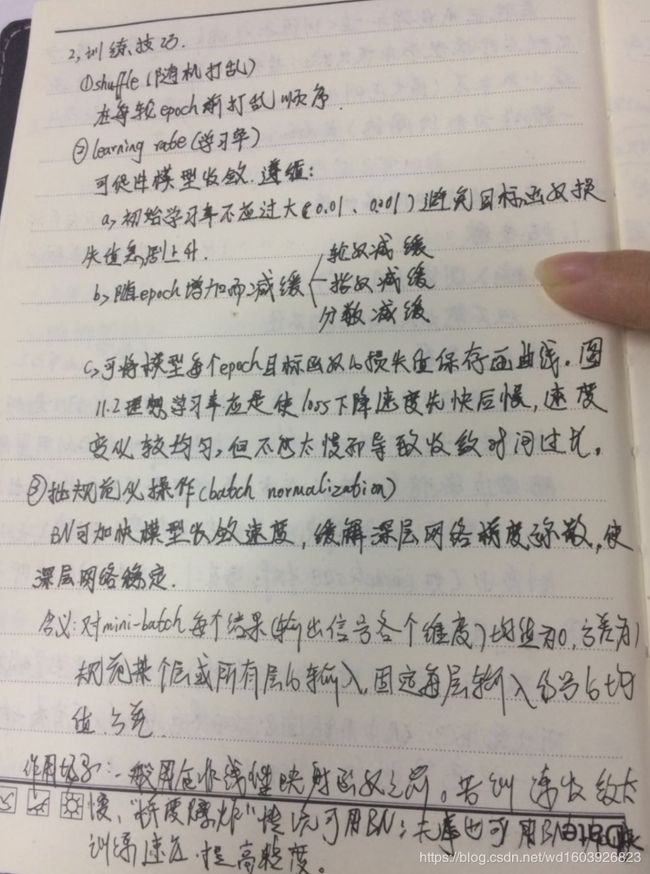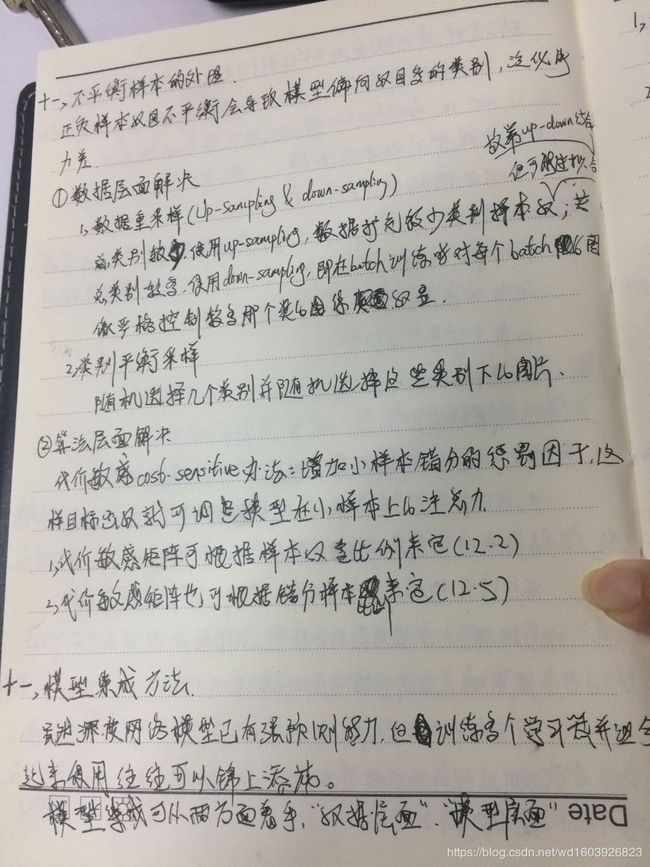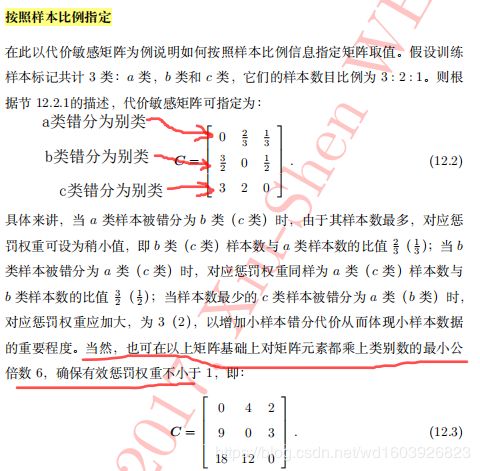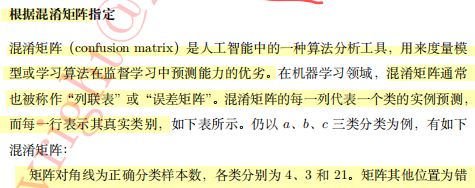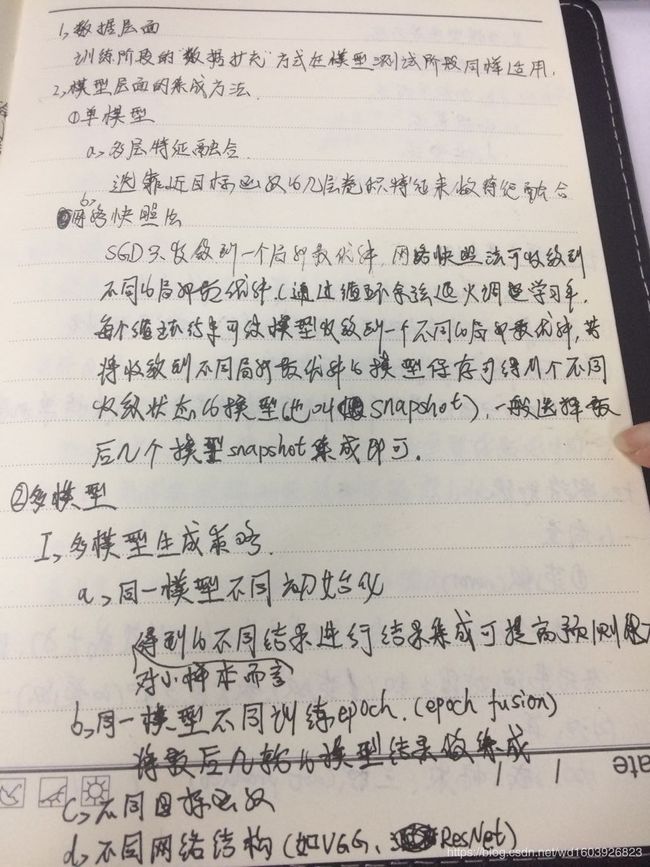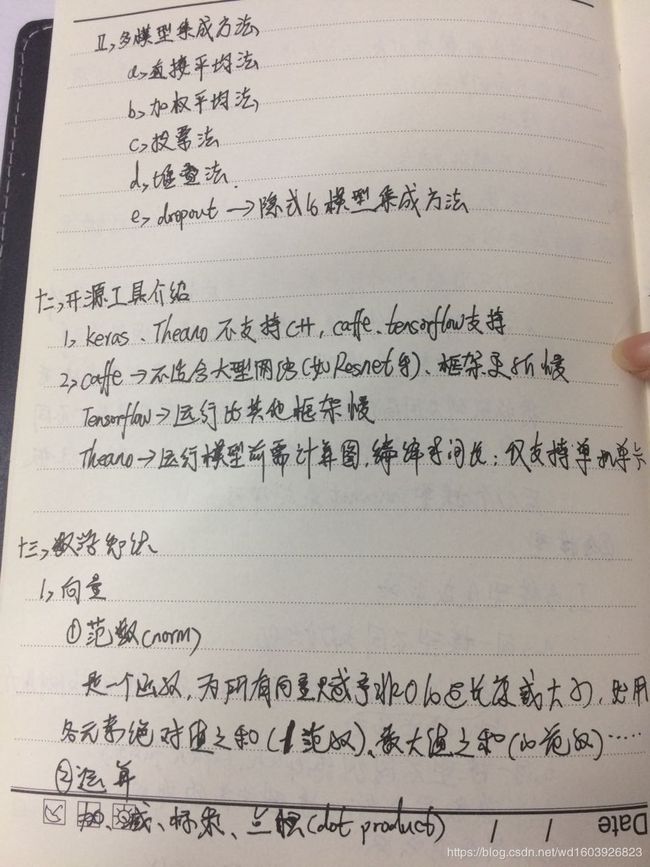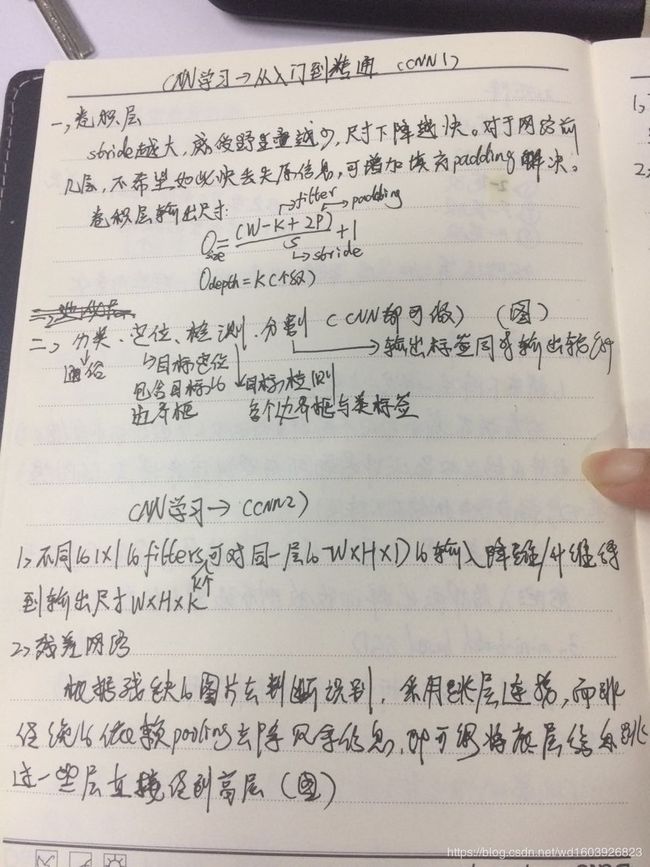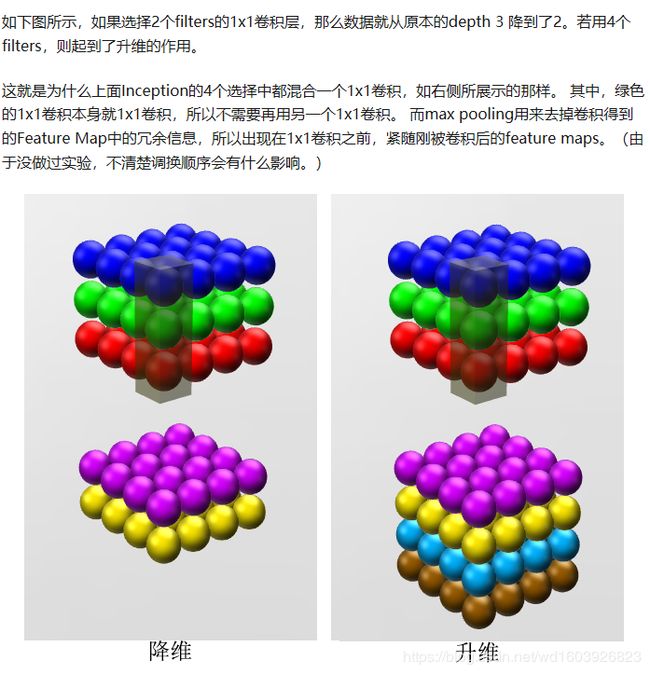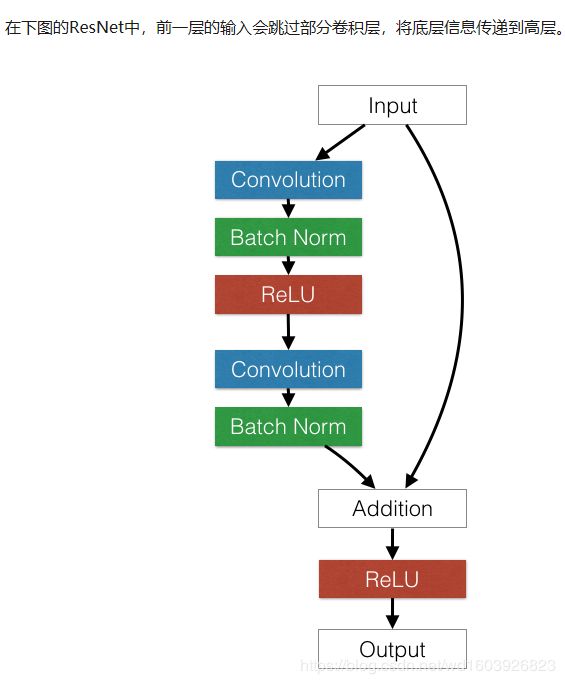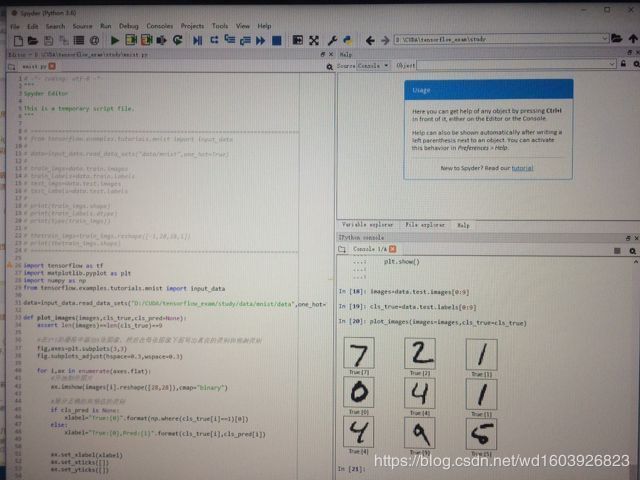菜鸟学习tensorflow1
因为工作需要,开始学习tensorflow,个人不是喜欢数学公式的类型,之前学习caffe、Keras都是从实用角度去学习即会用就行,对于CNN理论我都没有细看,那么多数学公式看得想睡觉。所以我学tensorflow的宗旨是先大概学习理论,对于理论要知道是怎么回事,公式看不懂就先不看,然后去实践能训练符合实际需求的模型会及时调整模型就OK。至于具体的理论公式那些,以后有需求再学。
一、学习《解析卷积神经网络—深度学习实践手册》
这本书公式比较少,可以做入门的看看,但我笔记字迹潦草,也只有我自己看得懂。
小的卷积核多层叠加可参考下图:
五、数据预处理:中心式归一化(图像减去均值),训练集、验证集、测试集都这样做。
六、网络参数初始化:全零初始化、随机初始化。
七、激活函数:有多种激活函数的。
八、目标函数:
九、网络正则化:为了防止过拟合,提高模型的泛化能力,建议使用正则化,如dropout、使用验证集等。
十三、随机梯度下降
1、梯度下降法:迭代一次需全部样本。沿着梯度减小的方向可找到目标函数的局部极小值如下图所示
2、随机梯度下降法SGD:每次计算只需要一个样本,故不一定是模型整体的最优方向,可能陷入局部最优解而收敛到不理想状态。
3、mini-batch based SGD:其实是上两个的折中办法,实际中常用。
至此,这本书囫囵吞枣看完。
二、看网页
https://mp.weixin.qq.com/s?__biz=MzA3MzI4MjgzMw==&mid=2650717691&idx=2&sn=3f0b66aa9706aae1a30b01309aa0214c#rd
https://zhuanlan.zhihu.com/p/27642620
https://zhuanlan.zhihu.com/p/23932714 https://www.cnblogs.com/Anita9002/p/9296014.html
三、搭建windows10+python3.6+tensorflow1.14.0+opencv环境
网上一大把教程讲如何搭建环境,一个不行就换另一个参考,一定要搭建合适自己显卡、显卡驱动、python版本、tensorflow版本相符的。我搭建完毕:
PS C:\Users\jp\Desktop> nvcc -V
nvcc: NVIDIA (R) Cuda compiler driver
Copyright (c) 2005-2018 NVIDIA Corporation
Built on Sat_Aug_25_21:08:04_Central_Daylight_Time_2018
Cuda compilation tools, release 10.0, V10.0.130
PS C:\Users\jp\Desktop> conda list
# packages in environment at D:\CUDA\anaconda:
#
_ipyw_jlab_nb_ext_conf 0.1.0 py36he6757f0_0
absl-py 0.7.1
alabaster 0.7.10 py36hcd07829_0
anaconda 5.0.0 py36hea9b2fc_0
anaconda-client 1.6.5 py36hd36550c_0
anaconda-navigator 1.6.8 py36h4b7dd57_0
anaconda-project 0.8.0 py36h8b3bf89_0
asn1crypto 0.22.0 py36h8e79faa_1
astor 0.8.0
astroid 1.5.3 py36h9d85297_0
astropy 2.0.2 py36h06391c4_4
babel 2.5.0 py36h35444c1_0
backports 1.0 py36h81696a8_1
backports.shutil_get_terminal_size 1.0.0 py36h79ab834_2
beautifulsoup4 4.6.0 py36hd4cc5e8_1
bitarray 0.8.1 py36h6af124b_0
bkcharts 0.2 py36h7e685f7_0
blaze 0.11.3 py36h8a29ca5_0
bleach 2.0.0 py36h0a7e3d6_0
bokeh 0.12.7 py36h012f572_1
boto 2.48.0 py36h1a776d2_1
bottleneck 1.2.1 py36hd119dfa_0
bzip2 1.0.6 vc14hdec8e7a_1 [vc14]
ca-certificates 2017.08.26 h94faf87_0
cachecontrol 0.12.3 py36hfe50d7b_0
certifi 2017.7.27.1 py36h043bc9e_0
cffi 1.10.0 py36hae3d1b5_1
chardet 3.0.4 py36h420ce6e_1
click 6.7 py36hec8c647_0
cloudpickle 0.4.0 py36h639d8dc_0
clyent 1.2.2 py36hb10d595_1
colorama 0.3.9 py36h029ae33_0
comtypes 1.1.2 py36heb9b3d1_0
conda 4.3.27 py36hcbae3bd_0
conda-build 3.0.22 py36hd71664c_0
conda-env 2.6.0 h36134e3_1
conda-verify 2.0.0 py36h065de53_0
console_shortcut 0.1.1 haa4cab3_2
contextlib2 0.5.5 py36he5d52c0_0
cryptography 2.0.3 py36h123decb_1
curl 7.55.1 vc14hdaba4a4_3 [vc14]
cycler 0.10.0 py36h009560c_0
cython 0.26.1 py36h18049ac_0
cytoolz 0.8.2 py36h547e66e_0
dask 0.15.2 py36h25e1b01_0
dask-core 0.15.2 py36hf9e56b0_0
datashape 0.5.4 py36h5770b85_0
decorator 4.1.2 py36he63a57b_0
distlib 0.2.5 py36h51371be_0
distributed 1.18.3 py36h5be4c3e_0
docutils 0.14 py36h6012d8f_0
entrypoints 0.2.3 py36hfd66bb0_2
et_xmlfile 1.0.1 py36h3d2d736_0
fastcache 1.0.2 py36hffdae1b_0
filelock 2.0.12 py36hd7ddd41_0
flask 0.12.2 py36h98b5e8f_0
flask-cors 3.0.3 py36h8a3855d_0
freetype 2.8 vc14h17c9bdf_0 [vc14]
gast 0.2.2
get_terminal_size 1.0.0 h38e98db_0
gevent 1.2.2 py36h342a76c_0
glob2 0.5 py36h11cc1bd_1
google-pasta 0.1.7
greenlet 0.4.12 py36ha00ad21_0
grpcio 1.23.0
h5py 2.7.0 py36hfbe0a52_1
hdf5 1.10.1 vc14hb361328_0 [vc14]
heapdict 1.0.0 py36h21fa5f4_0
html5lib 0.999999999 py36ha09b1f3_0
icc_rt 2017.0.4 h97af966_0
icu 58.2 vc14hc45fdbb_0 [vc14]
idna 2.6 py36h148d497_1
imageio 2.2.0 py36had6c2d2_0
imagesize 0.7.1 py36he29f638_0
intel-openmp 2018.0.0 hcd89f80_7
ipykernel 4.6.1 py36hbb77b34_0
ipython 6.1.0 py36h236ecc8_1
ipython_genutils 0.2.0 py36h3c5d0ee_0
ipywidgets 7.0.0 py36h2e74ada_0
isort 4.2.15 py36h6198cc5_0
itsdangerous 0.24 py36hb6c5a24_1
jdcal 1.3 py36h64a5255_0
jedi 0.10.2 py36hed927a0_0
jinja2 2.9.6 py36h10aa3a0_1
jpeg 9b vc14h4d7706e_1 [vc14]
jsonschema 2.6.0 py36h7636477_0
jupyter 1.0.0 py36h422fd7e_2
jupyter_client 5.1.0 py36h9902a9a_0
jupyter_console 5.2.0 py36h6d89b47_1
jupyter_core 4.3.0 py36h511e818_0
jupyterlab 0.27.0 py36h34cc53b_2
jupyterlab_launcher 0.4.0 py36h22c3ccf_0
Keras-Applications 1.0.8
Keras-Preprocessing 1.1.0
lazy-object-proxy 1.3.1 py36hd1c21d2_0
libiconv 1.15 vc14h29686d3_5 [vc14]
libpng 1.6.32 vc14hce43e6c_2 [vc14]
libssh2 1.8.0 vc14hcf584a9_2 [vc14]
libtiff 4.0.8 vc14h04e2a1e_10 [vc14]
libxml2 2.9.4 vc14h8fd0f11_5 [vc14]
libxslt 1.1.29 vc14hf85b8d4_5 [vc14]
llvmlite 0.20.0 py36_0
locket 0.2.0 py36hfed976d_1
lockfile 0.12.2 py36h0468280_0
lxml 3.8.0 py36h45350b2_0
Markdown 3.1.1
markupsafe 1.0 py36h0e26971_1
matplotlib 2.0.2 py36h58ba717_1
mccabe 0.6.1 py36hb41005a_1
menuinst 1.4.8 py36h870ab7d_0
mistune 0.7.4 py36h4874169_0
mkl 2018.0.0 h36b65af_4
mkl-service 1.1.2 py36h57e144c_4
mpmath 0.19 py36he326802_2
msgpack-python 0.4.8 py36h58b1e9d_0
multipledispatch 0.4.9 py36he44c36e_0
navigator-updater 0.1.0 py36h8a7b86b_0
nbconvert 5.3.1 py36h8dc0fde_0
nbformat 4.4.0 py36h3a5bc1b_0
networkx 1.11 py36hdf4b0f5_0
nltk 3.2.4 py36hd0e0a39_0
nose 1.3.7 py36h1c3779e_2
notebook 5.0.0 py36h27f7975_1
numba 0.35.0 np113py36_10
numexpr 2.6.2 py36h7ca04dc_1
numpy 1.17.0
numpy 1.13.1 py36haf1bc54_2
numpydoc 0.7.0 py36ha25429e_0
odo 0.5.1 py36h7560279_0
olefile 0.44 py36h0a7bdd2_0
openpyxl 2.4.8 py36hf3b77f6_1
openssl 1.0.2l vc14hcac20b0_2 [vc14]
packaging 16.8 py36ha0986f6_1
pandas 0.20.3 py36hce827b7_2
pandoc 1.19.2.1 hb2460c7_1
pandocfilters 1.4.2 py36h3ef6317_1
partd 0.3.8 py36hc8e763b_0
path.py 10.3.1 py36h3dd8b46_0
pathlib2 2.3.0 py36h7bfb78b_0
patsy 0.4.1 py36h42cefec_0
pep8 1.7.0 py36h0f3d67a_0
pickleshare 0.7.4 py36h9de030f_0
pillow 4.2.1 py36hdb25ab2_0
pip 9.0.1 py36hadba87b_3
pip 19.2.3
pkginfo 1.4.1 py36hb0f9cfa_1
ply 3.10 py36h1211beb_0
progress 1.3 py36hbeca8d3_0
prompt_toolkit 1.0.15 py36h60b8f86_0
protobuf 3.9.1
psutil 5.2.2 py36he84b5ac_0
py 1.4.34 py36ha4aca3a_1
pycodestyle 2.3.1 py36h7cc55cd_0
pycosat 0.6.2 py36hf17546d_1
pycparser 2.18 py36hd053e01_1
pycrypto 2.6.1 py36he68e6e2_1
pycurl 7.43.0 py36h086bf4c_3
pyflakes 1.5.0 py36h56100d8_1
pygments 2.2.0 py36hb010967_0
pylint 1.7.2 py36h091ff97_0
pyodbc 4.0.17 py36h0006bc2_0
pyopenssl 17.2.0 py36h15ca2fc_0
pyparsing 2.2.0 py36h785a196_1
pyqt 5.6.0 py36hb5ed885_5
pysocks 1.6.7 py36h698d350_1
pytables 3.4.2 py36h85b5e71_1
pytest 3.2.1 py36h753b05e_1
python 3.6.2 h6679aeb_11
python-dateutil 2.6.1 py36h509ddcb_1
pytz 2017.2 py36h05d413f_1
pywavelets 0.5.2 py36hc649158_0
pywin32 221 py36h9c10281_0
pyyaml 3.12 py36h1d1928f_1
pyzmq 16.0.2 py36h38c27d9_2
qt 5.6.2 vc14h6f8c307_12 [vc14]
qtawesome 0.4.4 py36h5aa48f6_0
qtconsole 4.3.1 py36h99a29a9_0
qtpy 1.3.1 py36hb8717c5_0
requests 2.18.4 py36h4371aae_1
rope 0.10.5 py36hcaf5641_0
ruamel_yaml 0.11.14 py36h9b16331_2
scikit-image 0.13.0 py36h6dffa3f_1
scikit-learn 0.19.0 py36h294a771_2
scipy 0.19.1 py36h7565378_3
seaborn 0.8.0 py36h62cb67c_0
setuptools 41.2.0
setuptools 36.5.0 py36h65f9e6e_0
simplegeneric 0.8.1 py36heab741f_0
singledispatch 3.4.0.3 py36h17d0c80_0
sip 4.18.1 py36h9c25514_2
six 1.10.0 py36h2c0fdd8_1
snowballstemmer 1.2.1 py36h763602f_0
sortedcollections 0.5.3 py36hbefa0ab_0
sortedcontainers 1.5.7 py36ha90ac20_0
sphinx 1.6.3 py36h9bb690b_0
sphinxcontrib 1.0 py36hbbac3d2_1
sphinxcontrib-websupport 1.0.1 py36hb5e5916_1
spyder 3.2.3 py36h132a2c8_0
sqlalchemy 1.1.13 py36h5948d12_0
sqlite 3.20.1 vc14h7ce8c62_1 [vc14]
statsmodels 0.8.0 py36h6189b4c_0
sympy 1.1.1 py36h96708e0_0
tblib 1.3.2 py36h30f5020_0
tensorboard 1.14.0
tensorflow-estimator 1.14.0rc1
tensorflow-gpu 1.14.0
termcolor 1.1.0
testpath 0.3.1 py36h2698cfe_0
tk 8.6.7 vc14hb68737d_1 [vc14]
toolz 0.8.2 py36he152a52_0
tornado 4.5.2 py36h57f6048_0
traitlets 4.3.2 py36h096827d_0
typing 3.6.2 py36hb035bda_0
unicodecsv 0.14.1 py36h6450c06_0
urllib3 1.22 py36h276f60a_0
vc 14 h2379b0c_1
vs2015_runtime 14.0.25123 hd4c4e62_1
wcwidth 0.1.7 py36h3d5aa90_0
webencodings 0.5.1 py36h67c50ae_1
werkzeug 0.12.2 py36h866a736_0
wheel 0.29.0 py36h6ce6cde_1
widgetsnbextension 3.0.2 py36h364476f_1
win_inet_pton 1.0.1 py36he67d7fd_1
win_unicode_console 0.5 py36hcdbd4b5_0
wincertstore 0.2 py36h7fe50ca_0
wrapt 1.11.1
xlrd 1.1.0 py36h1cb58dc_1
xlsxwriter 0.9.8 py36hdf8fb07_0
xlwings 0.11.4 py36hd3cf94d_0
xlwt 1.3.0 py36h1a4751e_0
yaml 0.1.7 vc14hb31d195_1 [vc14]
zict 0.1.2 py36hbda90c0_0
zlib 1.2.11 vc14h1cdd9ab_1 [vc14]
PS C:\Users\jp\Desktop> python
Python 3.6.2 |Anaconda, Inc.| (default, Sep 19 2017, 08:03:39) [MSC v.1900 64 bit (AMD64)] on win32
Type "help", "copyright", "credits" or "license" for more information.
>>> import tensorflow as tf
D:\CUDA\anaconda\lib\site-packages\tensorflow\python\framework\dtypes.py:516: FutureWarning: Passing (type, 1) or '1type' as a synonym of type is deprecated; in a future version of numpy, it will be understood as (type, (1,)) / '(1,)type'.
_np_qint8 = np.dtype([("qint8", np.int8, 1)])
D:\CUDA\anaconda\lib\site-packages\tensorflow\python\framework\dtypes.py:517: FutureWarning: Passing (type, 1) or '1type' as a synonym of type is deprecated; in a future version of numpy, it will be understood as (type, (1,)) / '(1,)type'.
_np_quint8 = np.dtype([("quint8", np.uint8, 1)])
D:\CUDA\anaconda\lib\site-packages\tensorflow\python\framework\dtypes.py:518: FutureWarning: Passing (type, 1) or '1type' as a synonym of type is deprecated; in a future version of numpy, it will be understood as (type, (1,)) / '(1,)type'.
_np_qint16 = np.dtype([("qint16", np.int16, 1)])
D:\CUDA\anaconda\lib\site-packages\tensorflow\python\framework\dtypes.py:519: FutureWarning: Passing (type, 1) or '1type' as a synonym of type is deprecated; in a future version of numpy, it will be understood as (type, (1,)) / '(1,)type'.
_np_quint16 = np.dtype([("quint16", np.uint16, 1)])
D:\CUDA\anaconda\lib\site-packages\tensorflow\python\framework\dtypes.py:520: FutureWarning: Passing (type, 1) or '1type' as a synonym of type is deprecated; in a future version of numpy, it will be understood as (type, (1,)) / '(1,)type'.
_np_qint32 = np.dtype([("qint32", np.int32, 1)])
D:\CUDA\anaconda\lib\site-packages\tensorflow\python\framework\dtypes.py:525: FutureWarning: Passing (type, 1) or '1type' as a synonym of type is deprecated; in a future version of numpy, it will be understood as (type, (1,)) / '(1,)type'.
np_resource = np.dtype([("resource", np.ubyte, 1)])
D:\CUDA\anaconda\lib\site-packages\h5py\__init__.py:34: FutureWarning: Conversion of the second argument of issubdtype from `float` to `np.floating` is deprecated. In future, it will be treated as `np.float64 == np.dtype(float).type`.
from ._conv import register_converters as _register_converters
D:\CUDA\anaconda\lib\site-packages\tensorboard\compat\tensorflow_stub\dtypes.py:541: FutureWarning: Passing (type, 1) or '1type' as a synonym of type is deprecated; in a future version of numpy, it will be understood as (type, (1,)) / '(1,)type'.
_np_qint8 = np.dtype([("qint8", np.int8, 1)])
D:\CUDA\anaconda\lib\site-packages\tensorboard\compat\tensorflow_stub\dtypes.py:542: FutureWarning: Passing (type, 1) or '1type' as a synonym of type is deprecated; in a future version of numpy, it will be understood as (type, (1,)) / '(1,)type'.
_np_quint8 = np.dtype([("quint8", np.uint8, 1)])
D:\CUDA\anaconda\lib\site-packages\tensorboard\compat\tensorflow_stub\dtypes.py:543: FutureWarning: Passing (type, 1) or '1type' as a synonym of type is deprecated; in a future version of numpy, it will be understood as (type, (1,)) / '(1,)type'.
_np_qint16 = np.dtype([("qint16", np.int16, 1)])
D:\CUDA\anaconda\lib\site-packages\tensorboard\compat\tensorflow_stub\dtypes.py:544: FutureWarning: Passing (type, 1) or '1type' as a synonym of type is deprecated; in a future version of numpy, it will be understood as (type, (1,)) / '(1,)type'.
_np_quint16 = np.dtype([("quint16", np.uint16, 1)])
D:\CUDA\anaconda\lib\site-packages\tensorboard\compat\tensorflow_stub\dtypes.py:545: FutureWarning: Passing (type, 1) or '1type' as a synonym of type is deprecated; in a future version of numpy, it will be understood as (type, (1,)) / '(1,)type'.
_np_qint32 = np.dtype([("qint32", np.int32, 1)])
D:\CUDA\anaconda\lib\site-packages\tensorboard\compat\tensorflow_stub\dtypes.py:550: FutureWarning: Passing (type, 1) or '1type' as a synonym of type is deprecated; in a future version of numpy, it will be understood as (type, (1,)) / '(1,)type'.
np_resource = np.dtype([("resource", np.ubyte, 1)])
>>> hello=tf.constant("Hello,Tensorflow!")
>>> sess=tf.Session()
2019-08-28 19:52:04.430777: I tensorflow/stream_executor/platform/default/dso_loader.cc:42] Successfully opened dynamic library nvcuda.dll
2019-08-28 19:52:04.620324: I tensorflow/core/common_runtime/gpu/gpu_device.cc:1640] Found device 0 with properties:
name: GeForce GTX 750 Ti major: 5 minor: 0 memoryClockRate(GHz): 1.15
pciBusID: 0000:01:00.0
2019-08-28 19:52:04.626042: I tensorflow/stream_executor/platform/default/dlopen_checker_stub.cc:25] GPU libraries are statically linked, skip dlopen check.
2019-08-28 19:52:04.638772: I tensorflow/core/common_runtime/gpu/gpu_device.cc:1763] Adding visible gpu devices: 0
2019-08-28 19:52:04.654001: I tensorflow/core/platform/cpu_feature_guard.cc:142] Your CPU supports instructions that this TensorFlow binary was not compiled to use: AVX2
2019-08-28 19:52:04.670785: I tensorflow/core/common_runtime/gpu/gpu_device.cc:1640] Found device 0 with properties:
name: GeForce GTX 750 Ti major: 5 minor: 0 memoryClockRate(GHz): 1.15
pciBusID: 0000:01:00.0
2019-08-28 19:52:04.679668: I tensorflow/stream_executor/platform/default/dlopen_checker_stub.cc:25] GPU libraries are statically linked, skip dlopen check.
2019-08-28 19:52:04.684111: I tensorflow/core/common_runtime/gpu/gpu_device.cc:1763] Adding visible gpu devices: 0
2019-08-28 19:56:01.856043: I tensorflow/core/common_runtime/gpu/gpu_device.cc:1181] Device interconnect StreamExecutor with strength 1 edge matrix:
2019-08-28 19:56:02.554806: I tensorflow/core/common_runtime/gpu/gpu_device.cc:1187] 0
2019-08-28 19:56:02.556662: I tensorflow/core/common_runtime/gpu/gpu_device.cc:1200] 0: N
2019-08-28 19:56:02.602271: I tensorflow/core/common_runtime/gpu/gpu_device.cc:1326] Created TensorFlow device (/job:localhost/replica:0/task:0/device:GPU:0 with 1380 MB memory) -> physical GPU (device: 0, name: GeForce GTX 750 Ti, pci bus id: 0000:01:00.0, compute capability: 5.0)
>>> print(sess.run(hello))
b'Hello,Tensorflow!'
>>>
操作实例时报错:
anaconda:no module named cv2
只能自己去官网 https://www.lfd.uci.edu/~gohlke/pythonlibs/#opencv
下载对应的opencv版本,
然后放进 D:\CUDA\anaconda\Lib\site-packages
打开Anaconda Prompt命令行进行安装pip install xxx.whl 即可。
四、照搬实例验证搭建成功
https://blog.csdn.net/u014038273/article/details/77963501
五、边看边学习边操作边想
这个网页我觉得博主写得很好:https://www.cnblogs.com/wanyu416/category/1289418.html 建议大家去看。
我是跟着他写的过程边看边操作边想的,特别是这一篇 https://www.cnblogs.com/wanyu416/p/9009985.html
"""
Created on Tue Sep 3 14:15:55 2019
https://www.cnblogs.com/wanyu416/p/8954098.html
https://www.cnblogs.com/wanyu416/p/9009985.html
@author: jp
"""
import tensorflow as tf
#const and tensor declaration
#const
m1=tf.constant([[3,3]])
m2=tf.constant([[2],[3]])
print(m1)
#tensor
product=tf.matmul(m1,m2)
print(product)
#variable
x=tf.Variable([1,2])
print(x)
a=tf.Variable([3,3])
#op#tensor
sub=tf.subtract(x,a)
print(sub)
add=tf.add(x,sub)
#init variables
init=tf.global_variables_initializer()
#create session
#op and tensor can only return results only in session
with tf.Session() as sess:
sess.run(init)
print(sess.run(sub))
print(sess.run(add))
print(sess.run(product))
#a +1 for 5 times
n=tf.Variable(0,name='counter')
newvalue=tf.add(n,1)
update=tf.assign(n,newvalue)
init=tf.global_variables_initializer()
with tf.Session() as sess:
sess.run(init)
print(sess.run(n))
for i in range(5):
#sess.run(newvalue)这一步是多此一举,update这个op会自动运行newvalue这个op
sess.run(update)
print(sess.run(n))
#run more than one ops
input1 = tf.constant(3.0)
input2 = tf.constant(2.0)
input3 = tf.constant(5.0)
add = tf.add(input2,input3)
mul = tf.multiply(input1,add)
with tf.Session() as sess:
result = sess.run([mul,add])#顺序对结果是有关系的
result2 = sess.run([add,mul])
print(result)
print(result2)
#定义变量时可先不输入具体数值,先占位,在会话中调用op时,再输入具体值
input1 = tf.placeholder(tf.float32) # 使用placeholder()占位,需要提供类型
input2 = tf.placeholder(tf.float32)
output = tf.multiply(input1,input2)
# 以字典形式输入feed_dict
with tf.Session() as sess:
print(sess.run(output,feed_dict={input1:8.0,input2:2.0}))
# 表示生成正态分布随机数,形状两行三列,标准差是2,均值是0,随机种子是1
w=tf.Variable(tf.random_normal([2,3],stddev=2, mean=0, seed=1))
#生成去掉过大偏离点的正态分布随机数
w=tf.Variable(tf.Truncated_normal([2,3],stddev=2, mean=0, seed=1))
# 表示从一个均匀分布[minval maxval)中随机采样,产生的数是均匀分布的,
#注意定义域是左闭右开,即包含 minval,不包含 maxval。
w=tf.Variable(tf.random_uniform([2,3],minval=0,maxval=1,dtype=tf.float32,seed=1))
allzero=tf.zeros([3,2],tf.int32) # 表示生成[[0,0],[0,0],[0,0]]
allone=tf.ones([3,2],tf.int32) # 表示生成[[1,1],[1,1],[1,1]
all6=tf.fill([3,2],6) # 表示生成[[6,6],[6,6],[6,6]]
constvalues=tf.constant([3,2,1]) # 表示生成[3,2,1]
#前向传播...过程模拟
#用placeholder 实现输入定义(sess.run 中喂入一组数据)的情况,特征有体积和重量
# placeholder占位,首先要指定数据类型,然后可以指定形状,因为我们现在只需要占一组数据,且有两个特征值,所以shape为(1,2)
x = tf.placeholder(tf.float32,shape=(1,2))
w1 = tf.Variable(tf.random_normal([2,3],stddev=1,seed=1)) # 生成权重
w2 = tf.Variable(tf.random_normal([3,1],stddev=1,seed=1))
a = tf.matmul(x,w1) # 矩阵乘法op
y = tf.matmul(a,w2)
with tf.Session() as sess:
init = tf.global_variables_initializer() # 初始化以后就放在这里,不容易忘记
sess.run(init)
print("y is",sess.run(y,feed_dict={x:[[0.7,0.5]]}))
# 以字典形式给feed_dict赋值,赋的是一个一行两列的矩阵,注意张量的阶数。
#这里只执行了y的op,因为执行了y也就执行了a这个op
#用 placeholder 实现输入定义(sess.run 中喂入多组数据)的情况
#定义输入和参数
x=tf.placeholder(tf.float32,shape=(None,2)) # 这里占位因为不知道要输入多少组数据,但还是两个特征,所以shape=(None,2),注意大小写
w1=tf.Variable(tf.random_normal([2,3],stddev=1,seed=1))
w2=tf.Variable(tf.random_normal([3,1],stddev=1,seed=1))
#定义前向传播过程
a=tf.matmul(x,w1)
y=tf.matmul(a,w2)
#用会话计算结果
with tf.Session() as sess:
init_op=tf.global_variables_initializer()
sess.run(init_op)
print("y is:",sess.run(y,feed_dict={x:[[0.7,0.5],
[0.2,0.3],
[0.3,0.4],
[0.4,0.5]]})) # 输入数据,4行2列的矩阵
#反向传播让训练集上loss最小
# =============================================================================
# 反向传播训练方法: 以减小 loss 值为优化目标。
# 一般有梯度下降、 momentum 优化器、 adam 优化器等优化方法。这三种优化方法用 tensorflow 的函数可以表示为:
# train_step=tf.train.GradientDescentOptimizer(learning_rate).minimize(loss)
# train_step=tf.train.MomentumOptimizer(learning_rate, momentum).minimize(loss)
# train_step=tf.train.AdamOptimizer(learning_rate).minimize(loss)
# =============================================================================
#实际模拟训练过程
#训练 3000 轮,每 500 轮输出一次损失函数
BATCH_SIZE = 8 # 一次输入网络的数据,称为batch。一次不能喂太多数据
SEED = 23455 # 产生统一的随机数
# 基于seed产生随机数,这是根据随机种子产生随机数的一种常用方法,要熟练运用
rdm = np.random.RandomState(SEED)
# 随机数返回32行2列的矩阵 表示32组 体积和重量 作为输入数据集。因为这里没用真实的数据集,所以这样操作。
X = rdm.rand(32, 2)
# 从X这个32行2列的矩阵中 取出一行 判断如果和小于1 给Y赋值1 如果和不小于1 给Y赋值0 (这里只是人为的定义),作为输入数据集的标签(正确答案)
Y_ = [[int(x0 + x1 < 1)] for (x0, x1) in X]
print("X:\n", X)
print("Y_:\n",Y_)
# 1定义神经网络的输入、参数和输出,定义前向传播过程。
x = tf.placeholder(tf.float32, shape=(None, 2))
y_ = tf.placeholder(tf.float32, shape=(None, 1))
w1 = tf.Variable(tf.random_normal([2, 3], stddev=1, seed=1))
w2 = tf.Variable(tf.random_normal([3, 1], stddev=1, seed=1))
a = tf.matmul(x, w1)
y = tf.matmul(a, w2)
# 2定义损失函数及反向传播方法。
loss = tf.reduce_mean(tf.square(y - y_))
train_step = tf.train.GradientDescentOptimizer(0.001).minimize(loss) # 三种优化方法选择一个就可以
# train_step = tf.train.MomentumOptimizer(0.001,0.9).minimize(loss_mse)
# train_step = tf.train.AdamOptimizer(0.001).minimize(loss_mse)
# 3生成会话,训练STEPS轮
with tf.Session() as sess:
init = tf.global_variables_initializer()
sess.run(init)
# 输出目前(未经训练)的参数取值。
print("w1:\n", sess.run(w1))
print("w2:\n", sess.run(w2))
print("\n")
# 训练模型。
STEPS = 3000
for i in range(STEPS): #0-2999
start = (i * BATCH_SIZE) % 32 #i=0,start=0,end=8;i=1,start=8,end=16;i=2,start=16,end=24;i=3,start=24,end=32;i=4,start=0,end=8。也就是说每次训练8组数据,一共训练3000次。
end = start + BATCH_SIZE
sess.run(train_step, feed_dict={x: X[start:end], y_: Y_[start:end]})
if i % 500 == 0:
total_loss = sess.run(loss, feed_dict={x: X, y_: Y_})
print("After %d training step(s), loss on all data is %g"%(i,total_loss))
# 输出训练好的参数。
print("\n")
print("w1:\n", sess.run(w1))
print("w2:\n", sess.run(w2))特别是 https://www.cnblogs.com/wanyu416/p/9012405.html 非常推荐,可惜后面再没有继续更新了。很佩服这个博主,讲解得很好。
